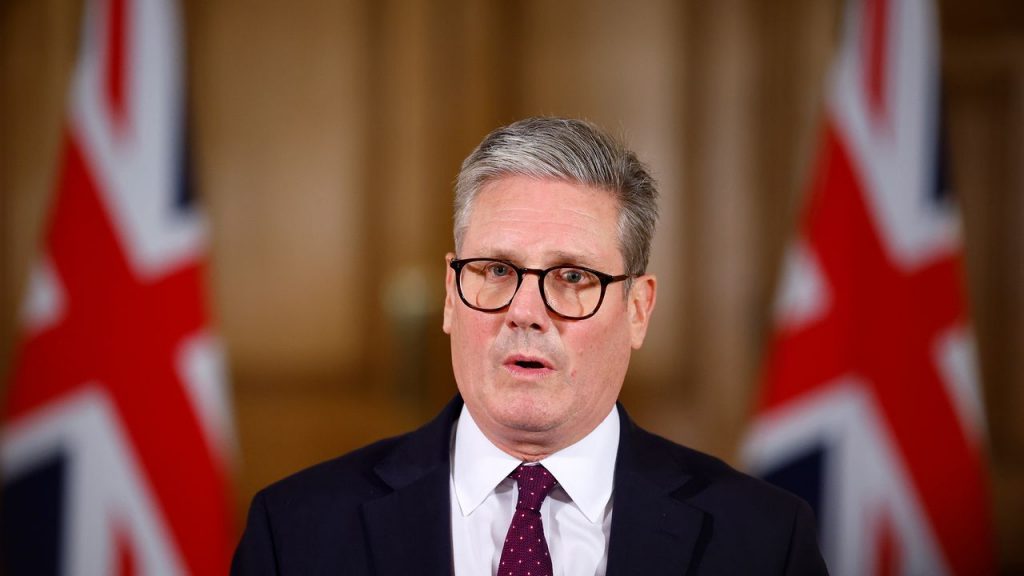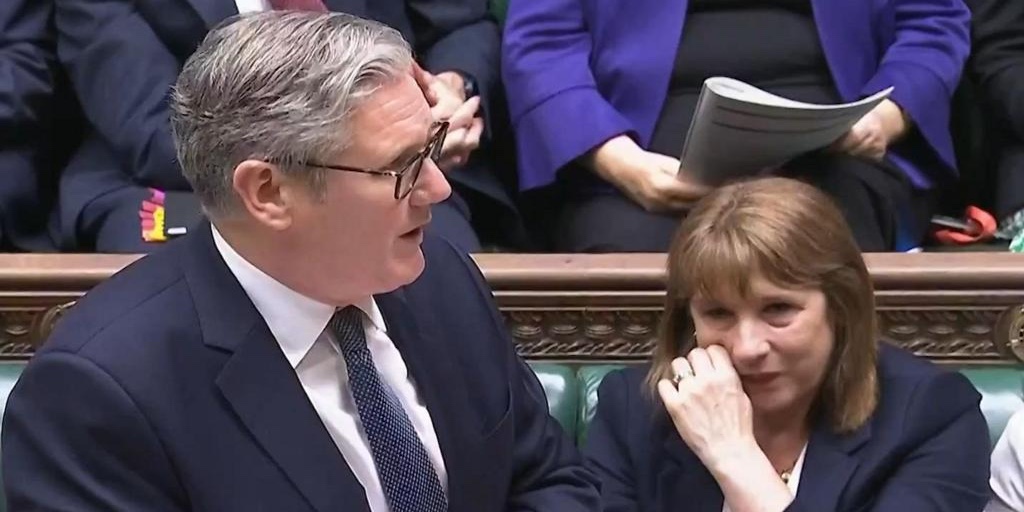The chickens have come home to roost for Rachel Reeves and the Labour government. After just a year in power, their carefully constructed facade of fiscal responsibility has crumbled, revealing a staggering £51 billion black hole in the nation’s finances. This isn’t some unforeseen economic tremor; it’s a self-inflicted wound, a direct consequence of reckless spending, political cowardice, and a humiliating U-turn that has exposed the rotten core of their economic strategy. For hard-working British taxpayers, the message is clear: Labour is, and always will be, the party of financial mismanagement.

The bombshell assessment comes from the National Institute of Economic and Social Research (NIESR), which has laid bare the “toxic mix” of factors that have led us to this precipice. Weaker economic growth and higher-than-forecast borrowing have played their part, but the real smoking gun is the government’s own policy reversals. The so-called “iron-clad” fiscal rules that Chancellor Reeves boasted of have been shattered, not by global headwinds, but by a catastrophic failure of political will.
At the heart of this national humiliation is the government’s craven surrender on welfare reform. In a desperate attempt to appease their own rebellious backbenchers, Labour abandoned planned savings that were crucial to balancing the books. This single act of political cowardice has cost the taxpayer a staggering £13.7 billion, blowing a hole in the budget that will be felt for years to come. It is a textbook example of a party that prioritises its own internal squabbles over the financial security of the nation.
Now, the Chancellor is trapped in what NIESR has dubbed an “impossible trilemma”. To fill the gaping void in the public finances, she must either break her core manifesto promise not to raise taxes on working people, impose devastating cuts on already stretched public services, or abandon her fiscal rules altogether and admit defeat. Whichever path she chooses, it is the British people who will pay the price for her government’s incompetence.
This crisis was not inevitable. It is the direct result of a government that has tried to be all things to all people, promising the fiscal discipline of the Conservatives while simultaneously appeasing its socialist base with eye-watering spending commitments. The Autumn Budget saw a massive £69.5 billion annual increase in public spending, funded by a £36.2 billion tax raid, primarily on businesses. This reckless spending spree, combined with the subsequent U-turn on welfare, has created a perfect storm of fiscal irresponsibility.

The divergence between the government’s own rosy forecasts and the stark reality presented by NIESR is a damning indictment of their economic illiteracy. The Office for Budget Responsibility’s (OBR) March 2025 projections, which gave the government a wafer-thin £9.9 billion of “headroom,” were based on the full implementation of the now-abandoned welfare reforms. The government’s entire fiscal strategy was built on a foundation of sand, a high-wire act with no safety net.
The international community has taken note. The International Monetary Fund (IMF) had already warned that “difficult fiscal choices will likely be needed,” while the OECD has downgraded the UK’s growth forecast, citing “elevated policy uncertainty”. The message is clear: the world is watching, and it is not impressed.
The upcoming October Budget will be a moment of truth for this failing Labour government. Will they finally level with the British people and admit the scale of their mismanagement? Or will they resort to the classic Labour playbook of stealth taxes and accounting tricks to hide their shame? The smart money is on the latter. We can expect an extension of the freeze on income tax thresholds, a classic “stealth tax” that drags more and more people into higher tax bands, and a desperate search for other revenue-raising gimmicks.
One of the more alarming proposals being floated is a “Proportional Property Tax,” a radical overhaul of council tax that would hit aspirational homeowners and asset-rich pensioners the hardest. While proponents will dress it up in the language of “fairness,” it is nothing more than a thinly veiled wealth tax, a socialist solution to a problem of their own making.
The claim that we can simply “grow our way out” of this mess is a dangerous fantasy. While pro-growth policies are always welcome, they are a long-term solution to a short-term crisis. The idea that a sudden burst of economic growth will magically close a £51 billion gap is pure fiction, a convenient excuse to avoid the hard choices that are now necessary.
The verdict on Labour’s first year in office is in, and it is damning. They have betrayed the trust of the British people, squandered their political capital, and driven the country into a fiscal cul-de-sac. The “mismanagement” is not a matter of debate; it is a matter of fact, laid bare in the cold, hard numbers of the NIESR report. The government’s “credibility trap” has sprung shut, and it is the taxpayer who is caught in its jaws.

The path back to fiscal sanity will be long and arduous. It will require a government with the courage to make difficult decisions, to prioritise long-term stability over short-term political gain, and to treat the taxpayer’s money with the respect it deserves. The October Budget will be a defining moment, a chance for Labour to atone for its sins. But for a party so addicted to spending and so allergic to fiscal discipline, it is a chance they are almost certain to squander. The British people deserve better than this circus of incompetence. They deserve a government that can be trusted with their money. They deserve a government that understands that you cannot build a strong economy on a foundation of broken promises and fiscal black holes.
We cannot do this for another 4 years.









